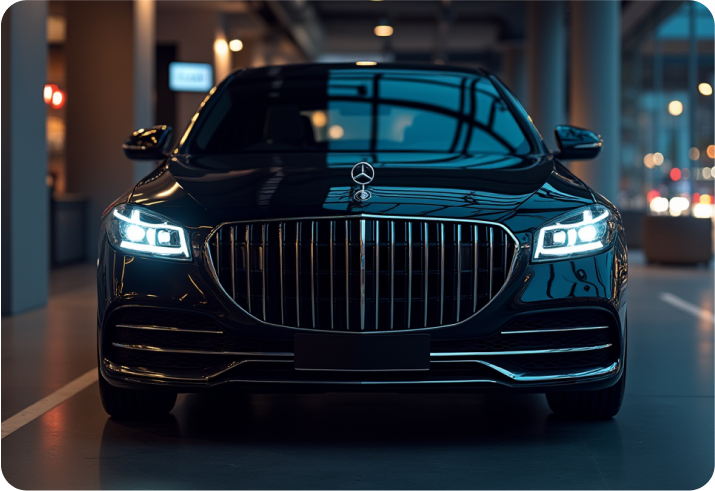How does a VIN number work?

You may need to provide the VIN of your car at some point. It might be to a dealership, insurance company or a potential buyer. But there is more attached to the string of characters. You might have always wondered what a VIN is or if it is possible to change it. Well, after reading this article, you will find it out.
What is a VIN Number?
VIN stands for a vehicle identification number and can be viewed in modern automobiles. VINs contain data about the vehicle's options, manufacturing and a unique serial number. In addition, the government maintained VIN histories, including service records and information about current and previous owners. This data is a public record. You can also know your car value by VIN check.
Modern VINs are specified to be 17 digits long. Unfortunately, this style prohibits automobiles manufactured within thirty years of one another from sharing the same VIN lookup. As a result, some older cars have an average length VIN, while others feature characters that don't have a definite meaning or follow a pattern.
Is it a VIN or VIN number?
The phrase VIN number is redundant. It is because VIN stands for or vehicle identification number. So in effect, you will be saying vehicle identification number.
What if the VIN does not have 17 characters?
Check to ensure that you have the proper VIN and have copied it accurately. Once you've determined that the VIN is less than 17 characters, it's most likely from a vehicle manufactured before 1981.
Before 1981, VINs ranged from 11 to 17 characters in length. As a result, information on automobiles made before 1981 is scarce.
What do those numbers and letters in a VIN mean?
Using a process called VIN recording, the VIN code is decoded. Each vehicle has a unique VIN sequence and coding procedure. A shop manual or a forum should explain how you can translate the VIN lookup for your car.
What is the location of my vehicle's VIN?
VIN checks usually appear on the driver's side dashboard near the windshield based on North American automobiles produced in several decades. The driver's side door jamb is in second place below the door latch. Finally, the VIN typically appears on an identifying plate beneath the hood of antique automobiles.
What does it mean when a car's numbers match?
It is common to find VINs on many components of older cars. A car with its original serial number on its engine, transmission, body, and other parts is called "numbers matching."
What is the purpose of a VIN?
The VIN is used for various things, including locating components, awarding traffic penalties, and establishing the original equipment and production date for older automobiles. In addition, insurance companies use VINs to link coverage to a specific vehicle, determine car value by VIN and history reports rely on information related to a vehicle's free VIN check rather than the actual paper trail, title, or licence plate number. The reason is that the VIN of a car is permanent. If it hasn't been tampered with - but more on that later.
Who is in charge of keeping track of VINs? Who has access to VIN information?
The government maintains VIN records in the United States. VIN data may be accessible by your local DMV office and a range of other entities such as car history reporting firms such as Carfax, organisations such as the Insurance Institute for Highway Safety, law enforcement, and border customs authorities.
Who has access to, or can contribute to, VIN data?
-
Dealerships and auto repair shops
-
Companies that provide background checks
-
The Insurance Institute for Highway Safety is one such organisation.
-
Agents of law enforcement and customs
Is it safe to give a stranger my VIN number?
Yes! Because VIN data is not a public record, providing your car's VIN to a potential buyer is perfectly secure, whether online or in person. The vehicle identification number (VIN) only helps gather broad information about your car's service records and history. After all, anyone may easily approach your vehicle and read its VIN. Therefore, there is no threat because VIN data is not made public.
Is it possible to modify a VIN?
Except in the case of foreign vehicle imports and historic automotive repair, it is unlawful in the United States to modify a VIN.
Unfortunately, it is possible to counterfeit a free VIN check and even a paper title. Therefore, it is a solid reason to obtain a car history report before purchasing a vehicle.
Conclusion
A simple VIN decode can let you discover an automobile's history and vital specs. Still, those digits are also helpful for less enjoyable but more critical reasons, including its title, registration, and insurance. Therefore, when purchasing new components for your car, always be sure to check the VIN. Vehicle components are frequently VIN-specific and may not fit your vehicle if you merely go by its year, make, and model. Are you interested in selling/buying a used luxury car? In New Delhi, Autobest is a one-stop solution to buying/selling second-hand luxury cars.

 By Admin
By Admin









